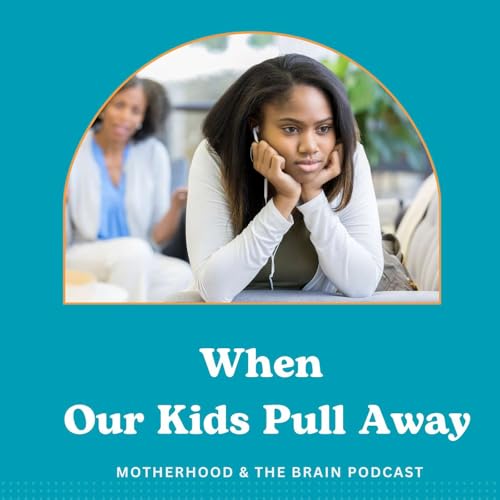
When Our Kids Pull Away
Failed to add items
Add to basket failed.
Add to Wish List failed.
Remove from Wish List failed.
Follow podcast failed
Unfollow podcast failed
-
Narrated by:
-
By:
About this listen
Rejection hurts. When our teenagers pull away, spending hours alone in their rooms and responding with one-word answers or slammed doors, many mothers experience it as personal rejection.
This pain isn't imaginary, neuroscience confirms that social rejection activates the same brain regions as physical pain, a mechanism evolved from our ancestors' dependence on group acceptance for survival.
For mothers who experienced rejection in their own childhoods, their children's natural bid for independence can trigger deep-seated wounds.
Having learned to associate closeness with safety and distance with danger, these mothers may unconsciously interpret a teenager's closed door as evidence of their own failure or unlovability rather than recognizing it as healthy development.
Society compounds this struggle by consistently messaging that children's behavior reflects parenting quality. We're taught that polite, thriving children indicate successful mothering, while moody or distant ones suggest we've failed somewhere.
This creates a dangerous pattern where mothers manipulate children's behavior not just for household harmony, but to regulate their own self-worth.
When children become responsible for their mother's emotional wellbeing, we unknowingly pass down the same harmful patterns that may have wounded us.
Breaking this cycle begins with awareness. That moment when your teen shuts the door in your face, pause before reacting. Notice what emotions surface, perhaps sadness, fear, or confusion.
Name these feelings as old pain rather than accurate reflections of your current reality. Instead of trying to fix your child's behavior to soothe yourself, focus on self-regulation through journaling, calling a supportive friend, taking a walk, or practicing deep breathing.
This challenging season is temporary, though the feelings it triggers are real. You can honor your disappointment while still holding space for your child's necessary growth.
By grounding yourself in self-worth that doesn't depend on your child's behavior, you create the foundation for a more authentic relationship built on mutual respect rather than emotional dependence.
The connection between you remains, even in the quiet, wa
Send us a text
Support the show
👉 The 60-second Yell Less Reset quiz is your first step toward change.
“I never wanted to be the mom who yells…”
But here you are, raising your voice, snapping over small things, saying things you wish you could take back.
You love your kids more than anything.
And you know they don’t deserve a mom who yells.
You just don’t know how to stop; especially when they won’t listen, talk back, or push every single boundary.
👉 The 60-second Yell Less Reset quiz is your first step toward change.
Already taken by many moms who wanted to break the yelling cycle.
Based on the science of how your brain responds to stress, this quiz goes beyond surface-level tips.
It helps you pause, uncover what’s really fueling those outbursts, and start shifting the pattern before it spirals again.
You’ll discover:
✅ Your personal Reset; so you can get your kids to listen without needing to yell, threaten, or give in
✅ It’s not just their behavior; it’s the moment you feel like nothing you say matters
✅A clear next step to help you stay calm and in charge; even when your kids are testing every boundary
Take the quiz. Start your reset now.


